Is your memory starting to play tricks on you? Don’t panic!
Here are our 10 tips to stimulate your memory on a daily basis!
Training your memory is important to keep your brain active. It helps to stay alert and autonomous in daily life activities, but it also helps in the prevention of age-related diseases that can affect the memory
1. Do activities that promote concentration
Reading the newspaper or listening to the radio helps focus your attention. You can also play various games such as scrabble, chess, crosswords.
All of these activities allow you to train your concentration and, consequently, your attention. Being attentive allows us to focus our brain on one thing, to perceive all the details and to remove all the information that is not important. In this way, we will have a more precise image of objects or situations. Memorization will be easier and we will be able to make links between our knowledge more quickly.

2. Exercise
It has been proven that regular exercise improves our cognitive abilities. Walk for half an hour a day! This will allow you to increase the amount of oxygen and blood flow in the body. This is perceived as a real benefit for the brain.
Get your sneakers on!😉

3. Eat carbs
Eat bread, rice, pasta or wholegrain cereals! The sugar in these foods nourishes your nerve cells.
The brain consumes more than 60% of the body’s glucose. It is therefore essential to give it some!
So make pleasure and benefits go hand in hand! 😉

4. Drink coffee
Coffee improves our brain performance.
In addition, caffeine fights against the aging of the body.
So, don’t hesitate to combine the benefits by combining bread and coffee for breakfast!

5. Sleep
During sleep, memory consolidates the learning acquired by our brain into a stable and lasting memory!
Each stage of sleep plays a role:
- Declarative memory (memories and knowledge) is stimulated during light and deep sleep.
- Procedural memory (motor and perceptual skills) is stimulated during REM sleep.
Caution! Age-related sleep disorders can be caused by very severe memory disorders.
So sleep, rest, and let your memory work!

6. Chew gum
One study showed that chewing gum while learning new information helps to retain it. Indeed, this would have an impact on the hippocampus, a part of the brain intimately linked to memory.
Why not give it a try? 😉

7. Make connections
In addition to making links, people remember better the information that they assimilate.
Don’t just repeat someone else’s sentences by heart if they don’t ring a bell to you.
Rephrase, explain what you have just learned aloud, or even to someone else.

8. Take ownership of the information
Linking new information to something you already know helps you remember and remember it more easily.
For example, Suzie just read this article. She has just learned that chewing gum is good for maintaining her cognitive abilities.

9. Do not skip naps
Sleep is one of the key factors of memorization.
Without sleep, and even if you follow the 9 previous tips, you will not improve your memory. Nor should you use this as an excuse to have long, lazy mornings on Saturdays and/or Sundays. Even a short nap is effective.

10. Train your brain with CLINT and SCARLETT
Discover now our brain training programs, the first adapted memory games to work on all your cognitive abilities.
With more than 30 games and three levels of difficulty, your brain coach adapts to your abilities and needs!
Clint is a brain coach for adults who want to challenge themselves and boost their memory, u for autonomous seniors for prevention, or by adults with disorders.
Scarlett is a memory coach adapted to seniors with disorders, this version is easier and without possibility of failure.
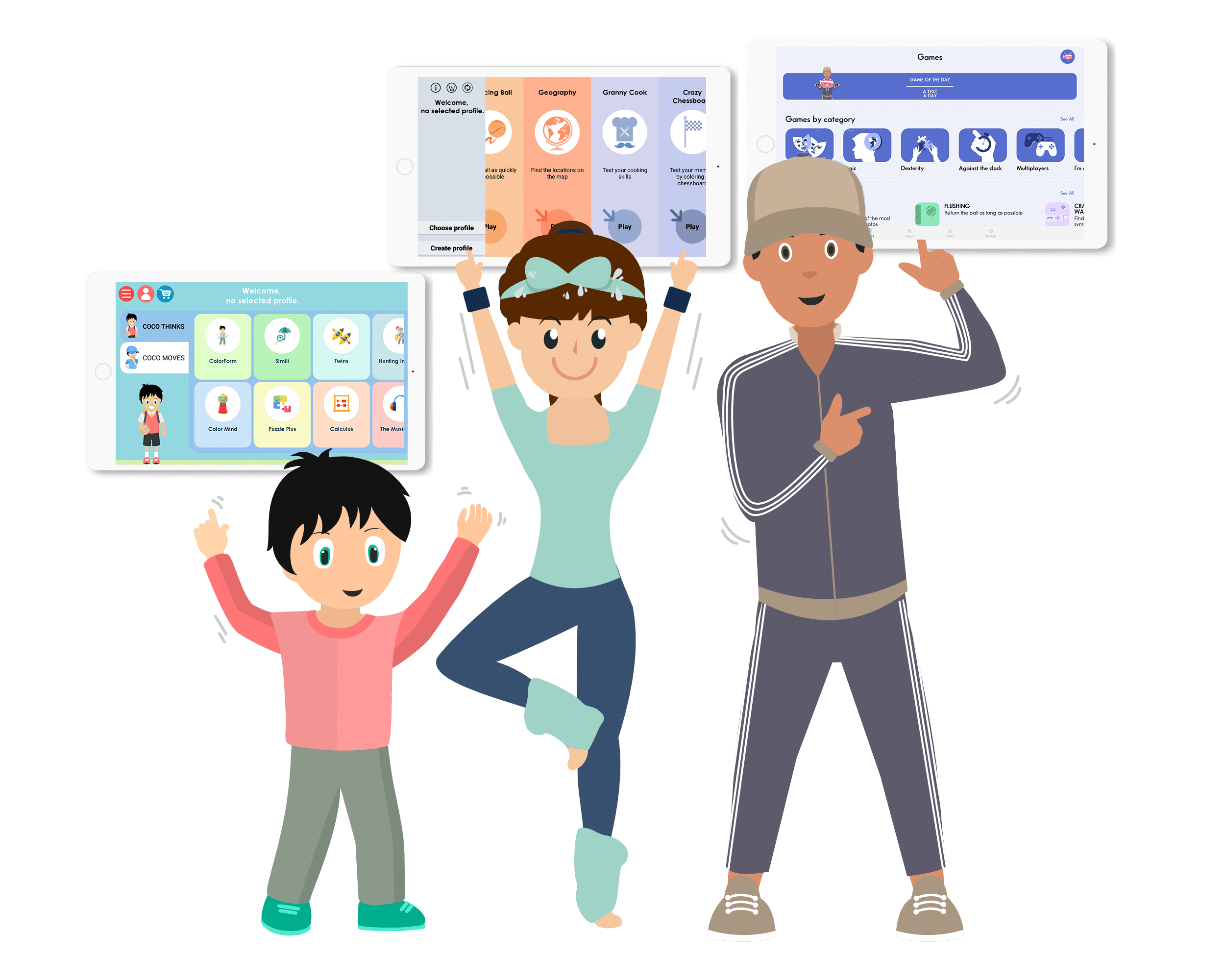
GAMES TO STIMULATE YOUR MEMORY
The games available in the apps allow you to work on all the cognitive functions such as the memory, attention, language and logic.
Here are a few example of games to train your memory!
A Card A Date
In this game, the person has to place the events in a chronolgical order.
There are several themes (personalities, science, art and culture, sports, history, inventions…) so everyone can choose the theme that interests them and play.
With this game you stimulate episodic memory and semantic memory because you have to think about past events. The game is not only a memory work, but a real cultural activity.
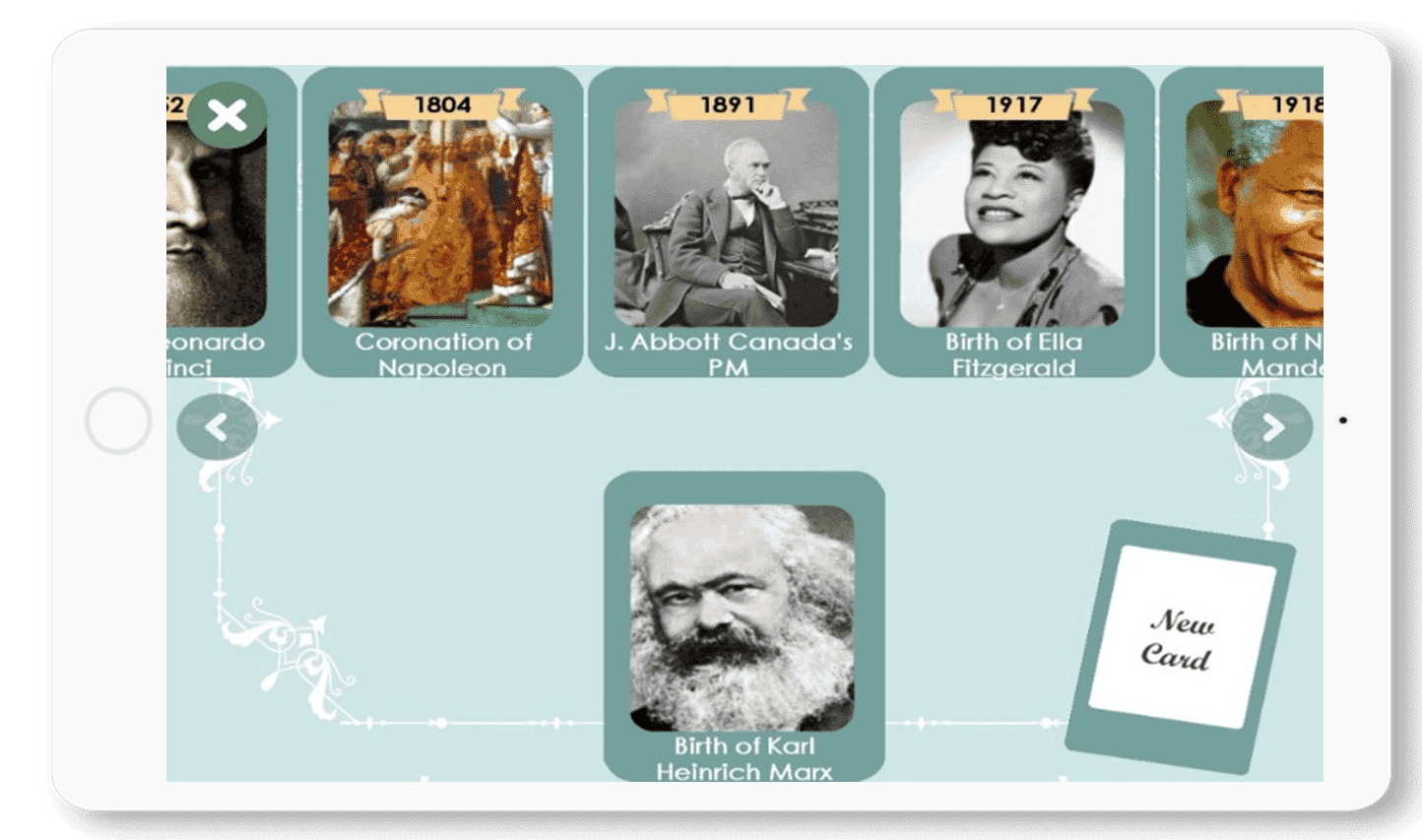
Granny Cooks
In this game, the person must find the ingredients or the procedure of a recipe.
Here, you work on semantic and episodic memory as well as visual memory and short-term memory. In short a global work on memory. In addition you can find many recipes that you can try to cook. Do you use the same recipes or do you use different ingredients? Also finding alternatives to known things can help the memory.
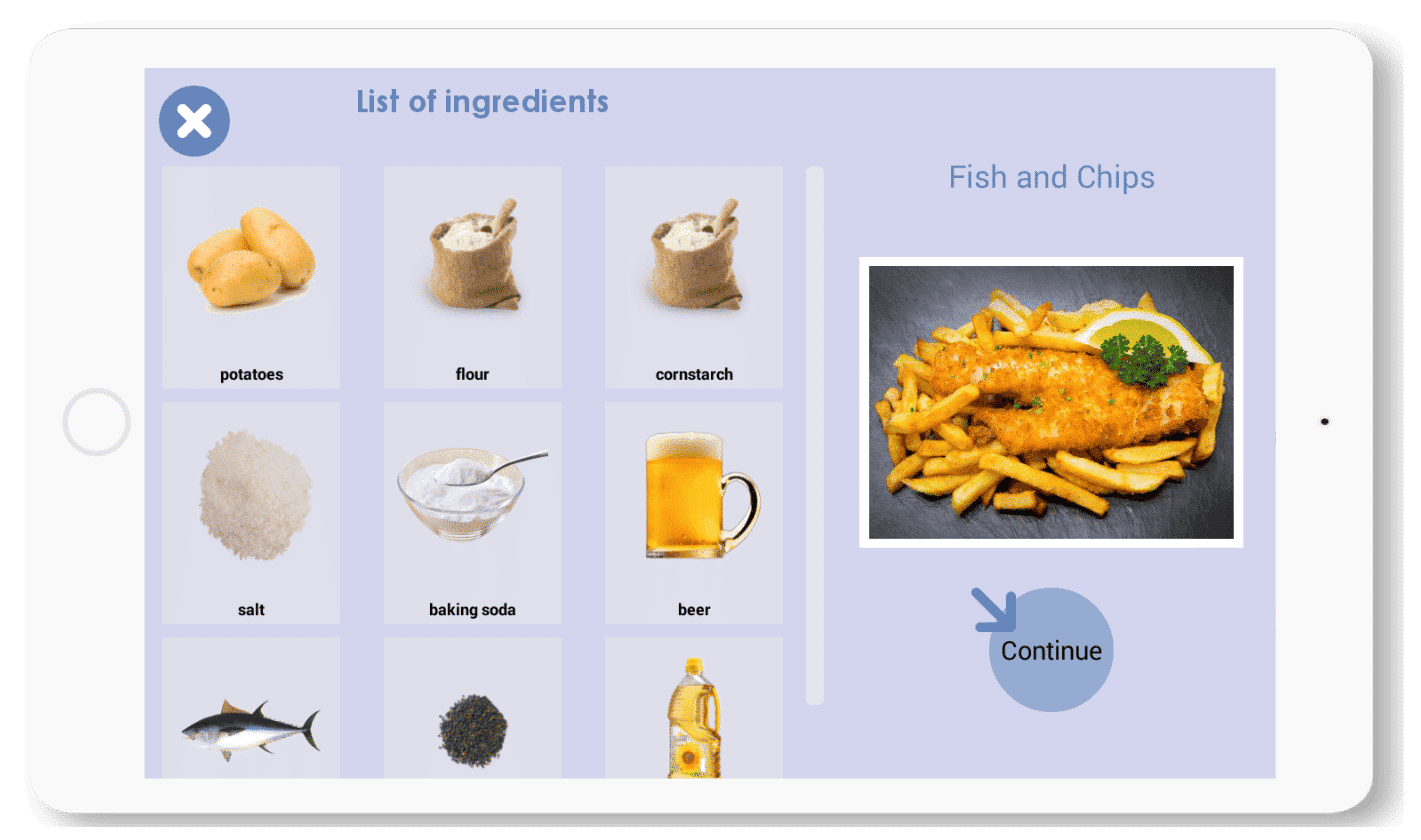
Geography
In this game the person has to find locations on the map and choose between the US States or the European countries.
This game will stimulate your long-term memory, because the positions of the places are knowledge that you learn during your whole life and you keep it in your long-term memory.
If you want there is also a modality where you have to remember the names of the places shown. Which modality do you prefer?
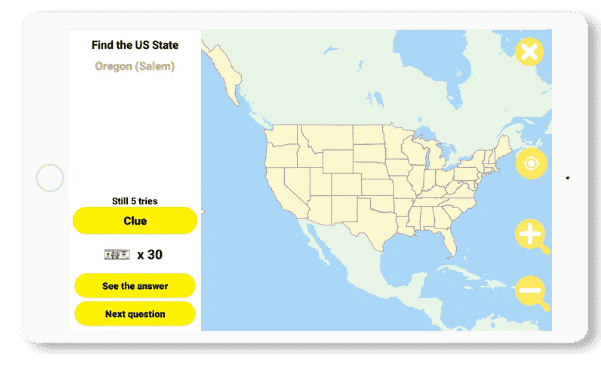
CLINT
A version for adult post-stroke post-cancer or post-COVID
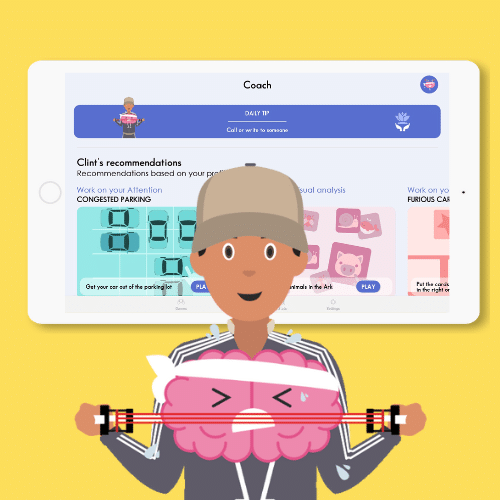
SCARLETT
A version for adults and seniors with severe cognitive impairment
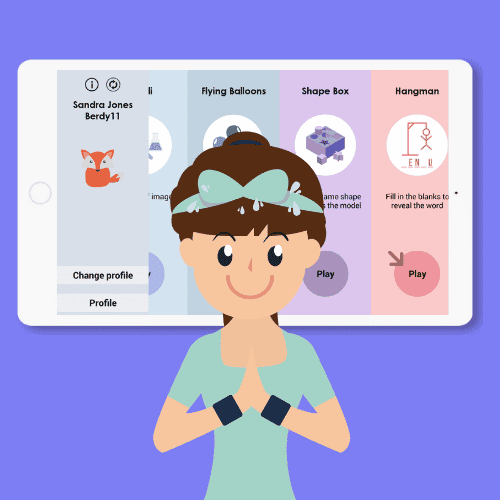
Other articles you might be interested in:
How Parents Can Contribute to Teacher Training
As we delve into the realm of education, it becomes increasingly clear that teacher training is not merely a...
Differentiated Instruction Approaches: Training and Practical Application
Differentiated instruction is a pedagogical approach that recognizes the diverse needs of students in a classroom. It...
Key Skills Teachers Need to Support Students with Special Needs
As we embark on our journey to support children with special needs, it is essential for us to cultivate a deep...







